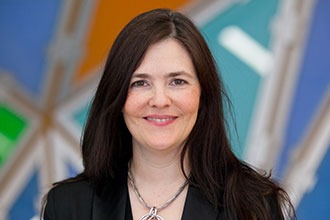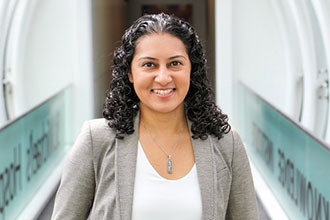Male physicians refer patients to male surgeons at disproportionate rates, study shows
A study that analyzed nearly 40 million referrals to surgeons in Ontario found male physicians disproportionately refer patients to male surgeons over similarly qualified and experienced female surgeons.
The study, published in JAMA Surgery, found that the differences in referral volumes and types could not be explained by patients’ choices or by characteristics of the surgeon, such as age or experience. The findings suggest that male physicians hold biases that disadvantage female surgeons, further widening the gender pay gap in medicine.
Researchers at Unity Health Toronto and ICES compared the proportion of referrals made by male and female physicians to male and female surgeons over a ten year span from 1997 to 2016. Nearly 40 million referrals were made to 5,660 surgeons. Although male surgeons accounted for 77.5 per cent of all surgeons, they received 79 per cent of referrals sent by female physicians, but 87 per cent of referrals sent by male physicians.

“During my 20 years in practice, I always had the sense it was easier for my male surgical colleagues to get referrals than it was for me, and the patients they were referred were more likely to need surgery,” said Dr. Nancy Baxter, senior author of the study and a scientist with the Li Ka Shing Knowledge Institute of St. Michael’s Hospital of Unity Health Toronto. “Our work demonstrates that my observations were not unique, but reflect gender bias that affects the lives and livelihoods of all female surgeons in the province,” said Dr. Baxter, who is also an adjunct scientist with the not-for-profit research institute ICES.
The study found female physicians were 1.6 per cent likelier to refer patients to a female surgeon, and male physicians were 32 per cent likelier to refer patients to a male surgeon. The differences were greatest in surgical specialties with the highest representation of female surgeons, such as gynecology and plastic surgery, and as more women entered surgery over the study’s 10-year span, this number did not decrease.
“There is an often made assumption that sex-based inequities in medicine will naturally improve as more women enter medicine and acquire experience,” said Dr. Fahima Dossa, co-lead author of the study and general surgery resident at St. Michael’s Hospital of Unity Health Toronto. “In contrast, our study demonstrates that inequities will not improve without active intervention – the specialties with the greatest representation of female surgeons, for example gynecology, exhibited the greatest degree of referral disparities.”

The authors say the findings demonstrate the need for efforts directly focused on eliminating sex-based biases within medicine. Dr. Dossa suggests innovative changes to the referral process, such as a single-entry referral model, in which referrals are scheduled to be seen by the first surgeon available.
“The time is now ripe to enact change,” she said. “Our work points toward a mechanism that directly contributes to the sex-based pay gap in medicine. Focused efforts at reducing the effects of implicit and explicit biases on referrals to physicians are now needed.”
The research builds off Dr. Baxter and Dr. Dossa’s previous work that found female surgeons in Ontario earn 24 per cent less per hour while operating compared to male surgeons, and that female surgeons performed fewer of the highest-paid primary procedures than male surgeons.
About St. Michael’s
St. Michael’s Hospital provides compassionate care to all who enter its doors. The hospital also provides outstanding medical education to future health care professionals in more than 27 academic disciplines. Critical care and trauma, heart disease, neurosurgery, diabetes, cancer care, care of the homeless and global health are among the Hospital’s recognized areas of expertise. Through the Keenan Research Centre and the Li Ka Shing International Healthcare Education Centre, which make up the Li Ka Shing Knowledge Institute, research and education at St. Michael’s Hospital are recognized and make an impact around the world. Founded in 1892, the hospital is fully affiliated with the University of Toronto.
About Unity Health Toronto
Unity Health Toronto, comprised of Providence Healthcare, St. Joseph’s Health Centre and St. Michael’s Hospital, works to advance the health of everyone in our urban communities and beyond. Our health network serves patients, residents and clients across the full spectrum of care, spanning primary care, secondary community care, tertiary and quaternary care services to post-acute through rehabilitation, palliative care and long-term care, while investing in world-class research and education. For more information, visit www.unityhealth.to.
About ICES
ICES is an independent, non-profit research institute that uses population-based health information to produce knowledge on a broad range of health care issues. Our unbiased evidence provides measures of health system performance, a clearer understanding of the shifting health care needs of Ontarians, and a stimulus for discussion of practical solutions to optimize scarce resources. ICES knowledge is highly regarded in Canada and abroad, and is widely used by government, hospitals, planners, and practitioners to make decisions about care delivery and to develop policy. In October 2018, the institute formerly known as the Institute for Clinical Evaluative Sciences formally adopted the initialism ICES as its official name. For the latest ICES news, visit www.ices.on.ca.
Media contacts:
Jennifer Stranges, Senior Communications Advisor at Unity Health Toronto
jennifer.stranges@unityhealth.to
MaryBeth McKenzie, Director of Communications at ICES
MaryBeth.McKenzie@ices.on.ca
